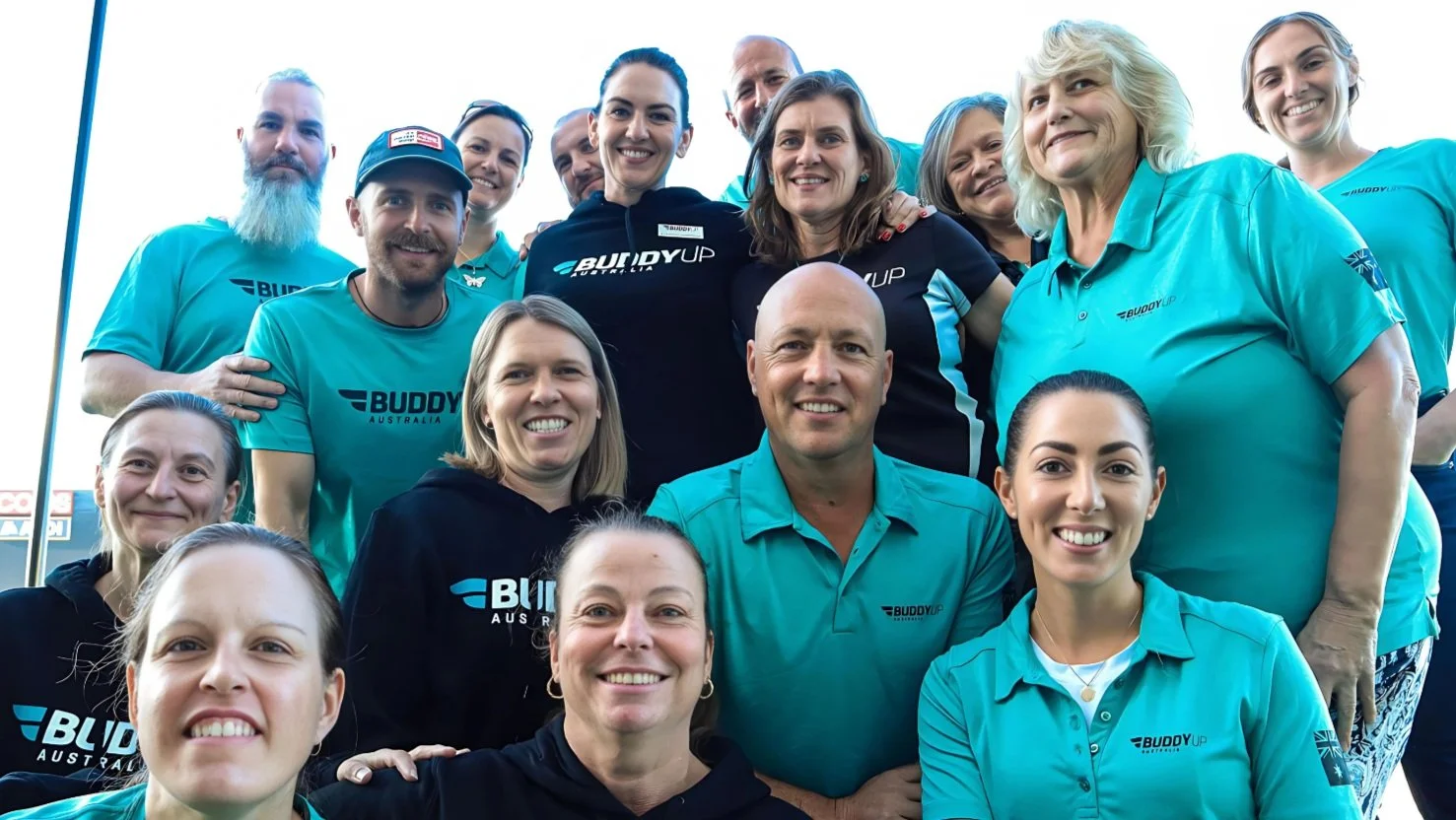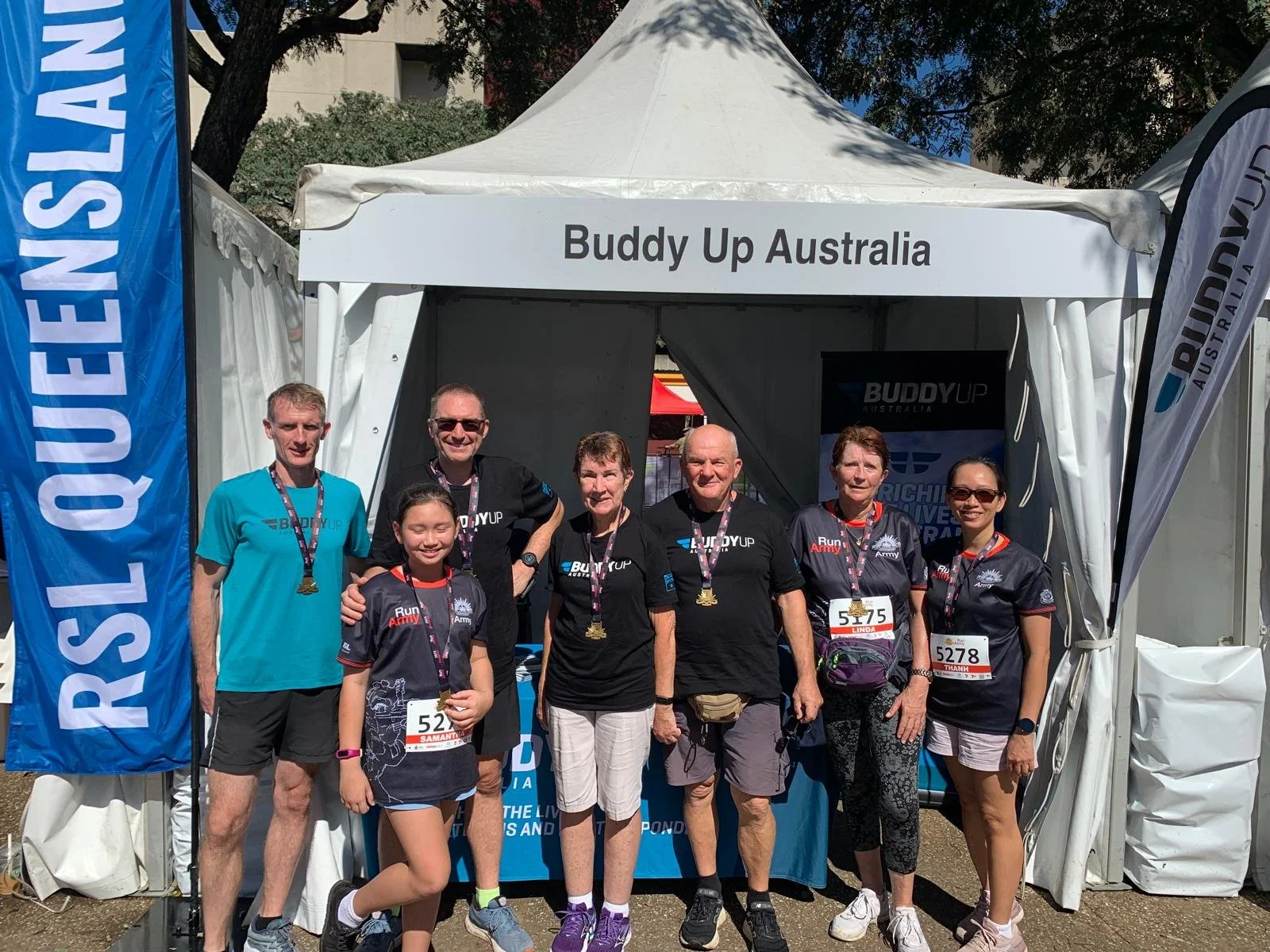Thrive Lifestyle
Our purpose is to strengthen the physical health, social connection and wellbeing of Defence and First Responders, both current and former.
Our Thrive Lifestyle combines 10 Lifestyle Principles that increase health, wellbeing and resilience, while proactively addressing the demands placed on this community.
Print the Tracker 2. Commit to a Monthly Challenge 3. Thrive
Live by the Light
Exposure to natural sunlight and maintaining a regular circadian rhythm provides meaningful health benefits for veterans. Research highlights strong links between light-based interventions and improved sleep, mental health, and pain management outcomes.
Key Benefits:
Improved mental health: Natural sunlight exposure significantly boosts morale and psychological wellbeing (Biggs et al., 2024), while morning light therapy has been shown to reduce PTSD symptoms (Burgess et al., 2018).
Better sleep quality: Bright light treatment and circadian-focused education improve both sleep duration and quality across veteran and active-duty populations (Haynes et al., 2016; Schmied et al., 2022).
2. Daily Exposure to Nature
Structured and repeated exposure to natural environments such as forests, mountains, and coastlines offers clear psychological and physiological benefits for veterans and first responders. Across several studies, nature-based experiences were associated with improvements in mood, reduced PTSD and anxiety symptoms, and measurable physical health changes.
Key Benefits:
Reduced PTSD and psychological distress: Veterans who spent more time outdoors experienced significantly lower PTSD symptoms and greater psychological growth (Bettmann et al., 2021; Wheeler et al., 2020).
Enhanced emotional wellbeing: Forest and coastal retreats improved positive affect, mental wellbeing, and reduced perceived stress among firefighters (Lee et al., 2024).
3. Walkabout
Regular low-intensity movement—like walking, gentle exercise, or even walking with a dog—makes a real difference to the wellbeing of veterans and first responders. It doesn’t have to be intense. Just moving consistently helps lower stress and lift mood (Evans-Hudnall et al., 2020; Munro et al., 2019).
Key Benefits:
Better mental health: Regular walking and gentle movement reduced PTSD, anxiety, depression, and stress (McKeon et al., 2020; Munro et al., 2019).
Improved energy and quality of life: Participants reported feeling better physically and emotionally, with measurable gains in vitality and wellbeing (Hall et al., 2016; McKeon et al., 2021).
4. Sweat
Getting the body moving early in the day—through yoga, resistance training, walking or even boxing—can dramatically improve how veterans and first responders handle stress and emotions. Programs that combined physical activity with mindfulness showed especially strong benefits (Mehling et al., 2018).
Key Benefits:
PTSD relief: Regular movement led to big drops in PTSD scores over 12 weeks (Mehling et al., 2018; Munro et al., 2019).
Stronger mood and focus: Exercise boosted emotional control, reduced anxiety and stress, and helped participants feel more positive (Munro et al., 2019).
5. Natural & Nutrient Dense
When veterans and first responders eat whole, nutrient-dense foods—like Mediterranean-style meals or anti-inflammatory diets—they see real improvements in both mental health and physical wellbeing. These aren’t just “health fads.” Solid studies show that what you eat directly impacts how you feel and function (Hull et al., 2019; Tessier et al., 2017).
Key Benefits:
Stronger mental health: Diets rich in omega-3s and whole foods helped reduce symptoms of PTSD, depression, and stress (Hibbeln & Gow, 2014; Tessier et al., 2017).
Better energy and quality of life: Nutrition-focused programs boosted daily functioning and improved overall wellbeing (Hull et al., 2019).
6. Tribe
Spending real, quality time with people who “get it”—family, friends, peers, or support groups—has a powerful effect on veterans and first responders. Whether it’s group chats, outdoor retreats, or peer-led programs, meaningful social connection reduces symptoms of PTSD, anxiety, and depression and boosts recovery and resilience (Wheeler et al., 2020; Galovski et al., 2024).
Key Benefits:
Stronger recovery and treatment outcomes: Supportive relationships improved treatment adherence and lowered dropout rates—especially when loved ones were involved (Meis et al., 2019).
7. Purpose
Veterans and first responders who have a strong sense of purpose—knowing their skills matter and others rely on them—experience real health benefits. Purpose doesn’t just help you feel more motivated; it lowers the risk of mental illness, improves physical functioning, and even protects against long-term disability (Fischer et al., 2022; Mota et al., 2016).
Key Benefits:
Stronger mental health: High purpose was linked to 42–94% lower odds of depression, anxiety, PTSD, and substance use (Fischer et al., 2022).
Resilience and growth: Purpose helped veterans bounce back from trauma and experience post-traumatic growth (Tsai et al., 2014).
8. Reflective
Veterans and first responders feel and function better when they take time to reflect with others. Whether it’s in a structured debrief, peer-led group, or a support network, making space to share and receive feedback leads to less anxiety, less depression, and a stronger sense of connection (Bird, 2015; Al Tarabeen, 2017).
Key Benefits:
Improved confidence and life satisfaction: Reflective group support improved self-efficacy, satisfaction with life, and even family and work relationships (Bird, 2015; Al Tarabeen, 2017).
9. Resilient
Veterans and first responders who learn to lean into short-term stress—rather than avoid or fight it—come out stronger. Mindset traits like psychological flexibility, mindfulness, and self-compassion are shown to help reduce PTSD, depression, and even disability over time (Elliott et al., 2019; Meyer et al., 2019).
Key Benefits:
Improved quality of life: Mindfulness and self-compassion led to lower disability and better daily functioning over the long term (Meyer et al., 2018).
Long-term growth through short-term challenge: Facing hard moments head-on predicted better mental health outcomes and stronger resilience later on (Russell et al., 2019).
Digital tools can either support your wellbeing or quietly wreck it. New research shows that when veterans and first responders use technology intentionally—through apps, wearables, and online programs—it can significantly improve sleep, reduce stress, and help manage PTSD and depression (Kahn et al., 2016; Stephan et al., 2020).
Key Benefits:
Built-in support: Text messages, smart reminders, and social platforms kept users engaged and helped them stick with healthy routines (McKeon et al., 2021; Obuobi-Donkor et al., 2021).










